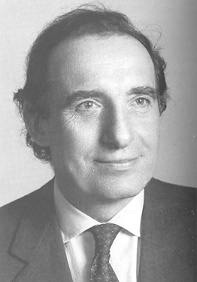 W
WRicciotto Canudo was an early Italian film theoretician who lived primarily in France. In 1913 he published a bimonthly avant-garde magazine entitled Montjoie!, promoting Cubism in particular. He saw cinema as "plastic art in motion", and gave cinema the label "the Sixth Art", later changed to "the Seventh Art", still current in French and Spanish, among others. Canudo subsequently added dance as a precursor to the sixth—a third rhythmic art with music and poetry—making cinema the seventh art.
 W
WCarlo Chatrian is an Italian journalist and the artistic director of the Berlin International Film Festival (Berlinale).
 W
WMario Gromo was a journalist, writer and Italian film critic.
 W
WEttore Mattia was an Italian journalist and actor.
 W
WMorando Morandini was an Italian film critic, author, journalist and occasional actor.
 W
WAlberto Moravia was an Italian novelist and journalist. His novels explored matters of modern sexuality, social alienation and existentialism. Moravia is best known for his debut novel Gli indifferenti (1929) and for the anti-fascist novel Il Conformista, the basis for the film The Conformist (1970) directed by Bernardo Bertolucci. Other novels of his adapted for the cinema are Agostino, filmed with the same title by Mauro Bolognini in 1962; Il disprezzo, filmed by Jean-Luc Godard as Le Mépris ; La Noia (Boredom), filmed with that title by Damiano Damiani in 1963 and released in the US as The Empty Canvas in 1964 and La ciociara, filmed by Vittorio De Sica as Two Women (1960). Cédric Kahn's L'Ennui (1998) is another version of La Noia.
 W
WAntonio Napolitano (1928-2014) is an Italian film critic. He was born in Naples.
 W
WMario Nuzzolese, more commonly known as "Professore" for his richness of culture, technical knowledge and enthusiasm in teaching. He was an Italian Lieutenant Colonel, teacher, journalist and film critic. He led the Italian cinema and entertainment culture, contributing to the management and development of the National AGIS Association and heading for more than 40 years as co-founder the Regional Delegation.
 W
WPier Paolo Pasolini was an Italian film director, poet, writer, and intellectual, who also distinguished himself as an actor, journalist, novelist, playwright, and political figure. He remains a controversial personality in Italy due to his blunt style and the focus of some of his works on taboo sexual matters. He was an established major figure in European literature and cinematic arts. His murder prompted an outcry in Italy and its circumstances continue to be a matter of heated debate.
 W
WGian Paolo Pillitteri is a former Italian Democratic Socialist Party politician and film critic. He was also affiliated with the Italian Socialist Party from 1976 to 1994. He was born in Sesto Calende, Province of Varese, Lombardy. He served in the Chamber of Deputies of Italy in Legislature IX (1983–1987) and Legislature XI (1992–1994). He was mayor of Milan from 1986 to 1992.